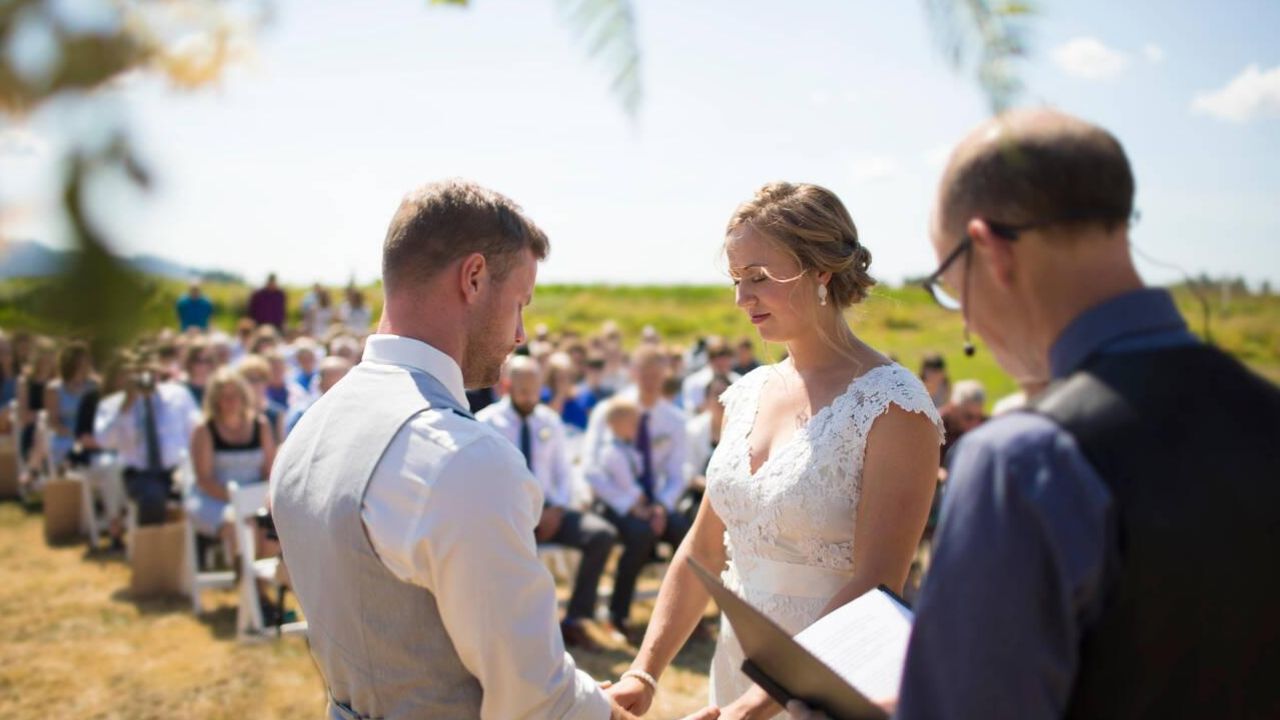Choosing to marry an older woman comes with its own set of challenges. Many find themselves drawn to the maturity, experience, and stability older women bring to a relationship. Yet, there’s more beneath the surface that needs attention.
This article sets out to shed light on less discussed aspects—the drawbacks that can emerge in such unions.
A TV show, ‘Rishta Likhenge Hum Naya,’ 10 disadvantages of marrying an older woman, bringing societal norms into question. Our guide dives deep into these challenges—from societal judgment to differing life goals—offering insights and solutions for navigating them successfully.
Ready? Let’s discover together how these relationships can thrive despite obstacles.
Understanding the Concept of Marrying an Older Woman
Marrying an older woman brings a blend of maturity, experience, and financial stability into the relationship. These women often have a clear understanding of what they want in life and how to care for their partners’ well-being.
This partnership moves beyond traditional age norms, focusing instead on mutual respect, shared values, and personal growth.
Challenges like societal opposition or differing life goals can arise. However, with effective communication and finding common ground, many couples navigate these waters successfully.
The relationship thrives on empathy, resilience, and a deep connection that transcends mere numbers in age gaps.
The Common Age Gap in Marriages
In many marriages, especially where the woman is older, the age gap can vary widely. Some couples might have a small difference of just a couple of years, while others might span decades.
This variance shows that love and compatibility go beyond age differences. Age-gap marriages often challenge societal norms but are becoming more accepted in today’s society.
Couples with an age difference face unique challenges and opportunities. They may experience different viewpoints due to generational gaps or varying life experiences. Despite these challenges, these relationships can thrive with understanding and mutual respect.
Their success lies in focusing on shared values and goals rather than the number of years between them.
Overview of the Pros and Cons of Marrying an Older Woman
Marrying an older woman brings maturity, independence, and a deeper understanding of life. Read on to find out more.
Enhanced Maturity
Older women often bring maturity and emotional intelligence to a relationship. This can lead to a balanced and fulfilling partnership. Both partners benefit from the stability and support that come with maturity.
This level of experience also contributes to better understanding and compassion within the relationship. It helps in resolving conflicts more effectively. With enhanced maturity, couples enjoy a more stable connection, fostering trust and mutual respect.
Self-sustainability
Marrying an older woman often brings financial stability to the relationship. This can lead to both partners feeling more independent and secure in their ability to support themselves.
With this kind of foundation, each person may find it easier to pursue personal growth and emotional maturity. Such self-sustainability is a big draw for many people looking into this type of marriage.
Financial independence within the marriage allows for healthier dynamics. Partners are less likely to feel trapped or overly dependent on one another, fostering an atmosphere where both individuals can thrive personally and as a couple.
This setup encourages mutual respect and understanding, critical components of any long-lasting relationship.
A Better Understanding of Life
An older woman often draws wisdom from her experiences. She has faced challenges and learned lessons that can deeply enrich a relationship. This wisdom means she understands life’s ups and downs better.
Her insights can help navigate through tough times, making the bond stronger.
She values communication and knows its power in building a healthy, lasting connection. With years of dealing with different people, she grasps the importance of listening and speaking kindly.
These skills are crucial for solving conflicts and growing closer as a couple.
The Downside of Marrying an Older Woman
Marrying an older woman might bring challenges, like conflicting life goals. These relationships can also face social pressures and misunderstandings.
Possible Lack of Submissiveness
Differences in energy levels and interests may challenge submissiveness in the relationship. The age difference could affect sexual compatibility, shaping the marriage’s power dynamics.
Societal perceptions and stereotypes about age gaps also play a role. This can lead to clashes over decision-making and daily life choices.
Older women might not always follow traditional gender roles. Their experience and self-sufficiency shape their approach to the relationship. Younger men often find this independence appealing, yet it may lead to differing expectations on both sides.
Respecting each other’s viewpoints becomes crucial for harmony.
Tendency to Claim Superior Wisdom
Marrying an older woman might lead to situations where she believes she knows best, based on her life experiences. This belief can create a power imbalance in the relationship. She may often give advice or make decisions without considering her partner’s views.
These actions are not out of malice but stem from a desire to protect or guide.
This behavior can sometimes cause frustration for the younger partner. They may perceive a lack of value or attention to their opinions. It’s crucial for both people in the relationship to respect and listen to each other’s thoughts and feelings equally.
Open communication is key to avoiding misunderstandings and ensuring both partners feel equally important in decision-making processes.
Potential for Less Physical Attraction
Age and physical appearance often play big roles in attraction. As people age, their looks change. This can lead to less physical attraction for some couples. It’s a real concern for relationships with an older woman and a younger man.
Society’s views on beauty add more pressure.
Changes in sexual compatibility might also happen over time. They stem from differences in aging between the partners. These issues are crucial to consider because they affect intimacy and relationship happiness.
Potential for a Lack of Physical and Sexual Satisfaction
Marrying an older woman might lead to issues with physical and sexual satisfaction. Over time, differences in energy levels and sexual drives can become more apparent. This may cause disappointment or frustration on both sides.
The article points out that these concerns are common, focusing on diminishing sexual drive and physical attractiveness as women age.
Couples could face challenges in maintaining a fulfilling sexual relationship. Changes in health and vitality affect intimacy, potentially leading to a less satisfying connection. These realities are worth considering for those enthusiastic about relationships with significant age gaps.
Possible Restricted Freedom
Marrying an older woman might mean adapting your lifestyle to hers. She could have set ways of living and expectations. This can lead to feeling like you have less freedom to make choices.
You may need to follow certain routines or meet expectations that don’t align with what you want.
Finding common ground becomes crucial in such relationships, as highlighted before. It’s about balance—ssharing decisions and respecting each other’s space. Yet, the challenge remains in ensuring both partners feel free and fulfilled without compromising too much on personal freedoms or goals.
A Comprehensive Analysis of the Disadvantages
We’ll dig deeper into the challenges of marrying an older woman. You’ll find out how these issues can affect both partners’ happiness and relationship health.
The Power Dynamics in the Relationship
The power dynamics in a relationship where one partner is significantly older can be complex. Often, the older person might assume a more dominant role due to their life experiences and wisdom.
This imbalance can lead to the younger partner feeling less heard or valued in decision-making processes. It’s not always intentional, but having one person with noticeably more knowledge or experience can tilt the balance of equality.
In some cases, this gap also affects how both partners view authority and control within the relationship. The younger individual may struggle with asserting their opinions or feel overshadowed by their spouse’s achievements and confidence.
Conflicts might arise if the older partner uses age as leverage over decisions or lifestyle choices, leading to resentment from the younger spouse, who desires an equal say in matters that affect their shared lives.
Differences in Life Goals and Timelines
Marrying an older woman often means dealing with differences in life goals and timelines. This gap can come from generational shifts in thinking about careers, starting a family, or even retirement plans.
An older partner might be closer to retirement or have adult children, while the younger partner might just be launching their career or considering having kids.
These timeline discrepancies could lead to disagreements on how to spend time together or allocate resources. For instance, one may prioritize saving for retirement immediately, whereas the other wishes to invest in experiences or education first.
Adjusting expectations and finding common ground become crucial in bridging this divide without creating tension.
Potential communication and compatibility issues
Different energy levels and interests often spark compatibility issues between older women and younger partners. These gaps can lead to misunderstandings and frustrations, making smooth conversations hard to maintain.
Since both may enjoy different activities or have contrasting views on spending leisure time, finding common ground becomes challenging.
Societal perceptions add another layer of difficulty. Stereotypes about age differences in relationships can pressure couples, causing tension and disagreements over how to navigate societal expectations.
Family reactions vary widely but tend to lean towards skepticism or disapproval, complicating the couple’s ability to communicate effectively with loved ones. This environment may hinder open discussions about future plans or desires, putting a strain on mutual understanding and support within the relationship.
Social and family dynamics
Marrying an older woman can stir up family concerns. Relatives might question the couple’s long-term compatibility and happiness. They worry about societal judgments and potential challenges in blending families, especially if children from previous relationships are involved.
Societal norms often add pressure. Friends and society might not always support these unconventional unions, leading to isolation or stress for the couple. Couples must face these dynamics together, finding harmony amid skepticism and navigating social stigmas with confidence.
Financial Expectations
Older women often bring financial stability to a relationship, thanks to careers and investments built over time. This can be a boon, but it also sets certain expectations. The younger partner might feel the pressure to match up financially or worry about future medical costs for their older spouse.
With health care expenses rising, this concern is real and requires open discussions on budgeting, insurance, and long-term care planning.
Choosing how to handle finances involves deciding between merging assets or keeping them separate. It’s vital to consider potential legal implications such as estate taxes, inheritance laws, and retirement accounts like IRAs and pensions.
Keeping both partners informed helps them prepare for any financial obstacles ahead without any surprises.
Health and Aging Concerns
Marrying an older woman brings health and aging to the forefront. Differences in energy levels may affect both partners’ physical and mental well-being. The younger spouse might have more vitality, pushing for activities that could exhaust the older partner.
On the flip side, the older spouse could face health challenges sooner, impacting both their lives significantly.
Society’s views on age-gap relationships add another layer of stress. Stereotypes and pressures can lead to anxiety, affecting health negatively. Differences in sexual compatibility due to aging could strain the relationship further, harming emotional bonds between partners.
These concerns are real and demand attention for a healthy, fulfilling partnership.
Differing lifestyle preferences
Couples with age gaps often face challenges due to different lifestyle preferences. She might enjoy quiet nights at home, while he seeks adventure and social outings. This difference can lead to misunderstandings and a feeling of disconnection.
It’s crucial for both partners to find activities they both enjoy or learn to appreciate their partner’s interests.
Interests in music, movies, and hobbies also tend to vary with age. An older woman may prefer classical concerts over the latest club hits her younger partner enjoys. They must work together, finding common ground in new experiences that enrich their relationship without forcing one to give up what they love.
Legal and estate planning
Legal and estate planning are crucial steps for securing a future together, especially when marrying an older woman. It’s essential to discuss financial expectations and legal implications early on.
Plans should cover inheritances, future financial security, and potential tax implications. Partnering with professionals for advice on estate planning can safeguard both partners’ interests.
Effective communication and mutual respect make these decisions easier. Planning considers the required minimum distributions from retirement accounts, inheritance taxes, and power of attorney arrangements.
This ensures both partners feel secure in their financial future together without unnecessary stress or complications.
Differences in Social Circles and Support
Marrying an older woman might lead to different social circles and support systems. Friends and family may not mesh well, causing tension. This gap can make gatherings awkward. Support from loved ones is crucial for any marriage, but these differences can strain relationships.
Statistics show that one in every four women marries a younger man, signaling societal shifts. Yet, couples still face challenges in finding common ground with their differing social supports.
Adapting to new friends or understanding each other’s networks becomes essential for harmony.
How to Handle the Disadvantages?
Facing challenges head-on requires effort and understanding. Open dialogue and a willingness to compromise can transform obstacles into opportunities for growth.
Effective Communication
Effective communication is crucial in any relationship but becomes even more essential when dealing with the challenges of an age gap, like Ratan and Diya face. It involves active listening and expressing thoughts clearly.
Both partners must speak openly about their feelings, desires, and concerns without fear of judgment. This openness helps to build a strong foundation of trust and mutual respect.
Ratan and Diya found common ground through honest conversations about their life goals, timelines, and daily preferences. They also tackled tough topics like health concerns, financial expectations, and social dynamics by talking things out constructively.
Their success in navigating these issues shows the power of effective communication in bridging age differences in a relationship.
Mutual Respect
Mutual respect stands as a cornerstone in marriages, especially those with an age gap. It means valuing each other’s opinions, feelings, and decisions equally. This respect bridges differences, fostering a strong bond between partners.
With it, couples can face challenges head-on, supporting one another’s growth.
Open communication forms the backbone of mutual respect. Couples must talk openly about their goals, fears, and expectations. This leads to shared understanding and helps avoid conflicts.
Remembering to treat each partner as an equal strengthens the relationship further, laying the foundation for lasting love and companionship.
Shared Goals
Having shared goals strengthens a marriage, especially when an older woman and a younger man unite. It’s about setting common objectives and values that both partners strive to achieve together.
This approach fosters unity and promotes a deeper understanding between spouses, helping them navigate life’s various stages with mutual support.
Working towards these agreed-upon aims requires effective communication, compromise, and flexibility from both sides. It helps in overcoming differences in life goals and timelines that might arise due to the age gap.
Shared interests and pursuits not only bring joy but also build a stronger bond that can withstand external pressures and challenges.
Compromise and Flexibility
Compromise and flexibility act as the bridge between different worlds in a marriage, especially when the couple has an age gap. Both partners must learn to bend and adjust their expectations to find common ground.
This means sometimes doing things one might not prefer for the happiness of the other person. For instance, adopting new hobbies or accepting changes in routine can greatly improve harmony.
It also involves understanding each other’s life stages and respecting them. An older partner may prioritize stability over adventure, while the younger partner might seek excitement and growth opportunities.
Acknowledging these differences without judgment encourages a supportive environment where both individuals feel valued. Flexibility in handling disagreements about future goals—like career moves or deciding on family planning—is crucial for sustaining love over time.
Dealing with External Pressure
Facing pressure from friends, family, and society can be tough for couples with an age gap. It’s crucial to stand together and support each other. Finding common ground helps balance the relationship.
Open communication is vital. Discuss feelings and how to handle negative comments or stares together. This way, both partners feel secure and understood, despite external opinions.
Ignoring negative outside influences keeps the focus on what truly matters—the relationship itself. Remember, happiness comes from mutual respect and shared goals, not societal norms or expectations.
Lean on each other during challenging times for strength and reassurance.
Quality Time Together
Spending quality time together strengthens a marriage, especially with an older woman. It builds effective communication and fosters mutual respect. Couples who carve out moments for each other can better handle pressure from the outside world.
These shared experiences support growth and equality in their union.
Making time for each other is crucial. It allows both partners to share their thoughts, experiences, and dreams. In marriages where one spouse is significantly older, this practice helps balance differences in life stages and interests.
Quality time leads to a deeper understanding between partners, making their bond stronger amidst any external challenges or societal pressures they face.
Seeking Professional Guidance
Finding common ground and building a balanced relationship with an age gap can be tough. Experts in relationships and personal finance offer advice on dealing with external pressures, handling financial expectations, and adjusting to different life stages.
They help couples find shared goals and work through compatibility issues.
Counselors provide tools for effective communication and conflict resolution. They assist in creating mutual respect within the couple, despite differences in social circles or life experiences.
Their guidance helps partners enjoy quality time together without feeling restricted by age-related challenges.
Conclusion
Marrying an older woman brings its own set of challenges. From societal views to personal preferences, couples face hurdles. Understanding and respect can bridge differences. It’s about finding a balance in love, goals, and life paths.
Love overcomes all obstacles, even when the wife is a few years older.




















